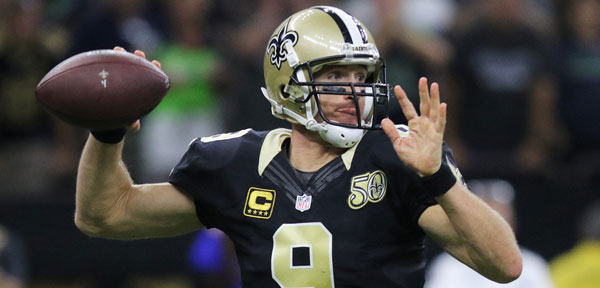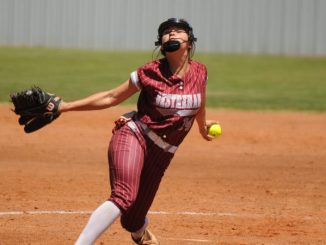
I’d like to take the time to note that Drew Brees is currently third all-time in passing yardage and, barring a sudden collapse, will take over the No. 1 spot this year. He trails Peyton Manning (71,940) and Brett Favre (71,838) with his own total of 70,455.
Please allow that to sink in.
At what point in your life did you ever even consider, in your wildest dreams, that a New Orleans Saints quarterback could for any time be the NFL’s all-time leading passer? As in Number One? As in, by one measurement anyway, the GOAT (Greatest of All Time … to our less-internet savvy readers. I’ve got yo’ back).
I remember when Brees signed in New Orleans. It was following Hurricane Katrina, and it took an incredible series of events to bring him here.
The San Diego Chargers, who drafted Brees in the second round of the 2001 NFL Draft, had given up on him as a long term starter after three seasons, two of them as the team’s primary starter. He struggled in that role and the franchise selected Philip Rivers with the fourth overall selection of the 2004 draft. That seemed to awaken Brees, who kept Rivers planted on the bench by winning the starting job in camp and holding the job for the next two years, earning Pro Bowl recognition along the way.
But in the final game of the 2004 regular season, Brees suffered a serious injury that cast his future in doubt. He tore the labrum in his throwing shoulder and reportedly also suffered damage to his rotator cuff. For Brees, renowned for his smarts and accuracy but not necessarily for having one of the league’s strongest arms, serious doubts arose around his ability to return as a viable starter, let alone to his previous form.
The Chargers likely would have kept Brees, even with the injury — but Rivers was on the roster. Had Brees found his footing just a year earlier, the team doesn’t invest such a high pick in Rivers and probably simply apply the franchise tag to Brees as they survey his recovery. Instead, they had a rare situation on their hands, and the team made the honestly defensible decision to allow Brees to leave.
He found lukewarm interest on the market, with just two teams making competitive offers: the Nick Saban-led Miami Dolphins and the New Orleans Saints, the latter with its ravaged city and uncertain future. Miami seemingly had Brees locked up until, as reports indicated, an evaluation by Miami’s team doctors made the Dolphins weary of honoring their original contract offer. As Brees wrote in his book, he put Saban on the spot and asked if he believed Brees could or would return to form. When Saban was non-committal, the Saints became the destination.
The interesting thing, to me, about the 2018 offseason was the ability of Brees and now-Vikings quarterback Kirk Cousins to test the market with no franchise tag or restriction. I can’t recall many instances of a top-flight passer changing teams even by trade in the modern NFL, but there are precious, precious few instances when a quarterback was allowed to truly test free agency.
For the Saints to sign Brees outright in 2006 was an absolute outlier of a situation EVEN BEFORE considering it took a serious, rare injury; Brees finding form only after his team drafted a quarterback in the top 5; a second opinion from doctors; and one NFL team that’s lost everything willing to gamble on someone, anyone, that could provide hope for not just a fanbase, but a city that truly needed it.
All of that lined up for the Saints, and we haven’t even touched on the most improbable part of it all …
Drew Brees not only came back, he was immediately BETTER THAN EVER. It took about 5 quarters of “game management” level play before Brees found himself needing to rally his team in the second game of the ’06 season, on the road at Green Bay. Whatever he was doing to baby his arm to that point was but a memory – the competitiveness in him surged and he started attacking downfield and making big throw after big throw.
A man that almost every NFL team that needed a quarterback deemed too risky to take a chance on … and that ‘almost’ is really ‘all,’ because the Saints likely knew their bet wasn’t golden but that they needed to take the chance anyway … was on his way to being a Hall of Famer. Potentially the All-Time passing leader.
A Super Bowl winner.
Brees rebuilt just as New Orleans did. And for those who don’t believe in things like fate, I don’t know what to tell you.





Be the first to comment